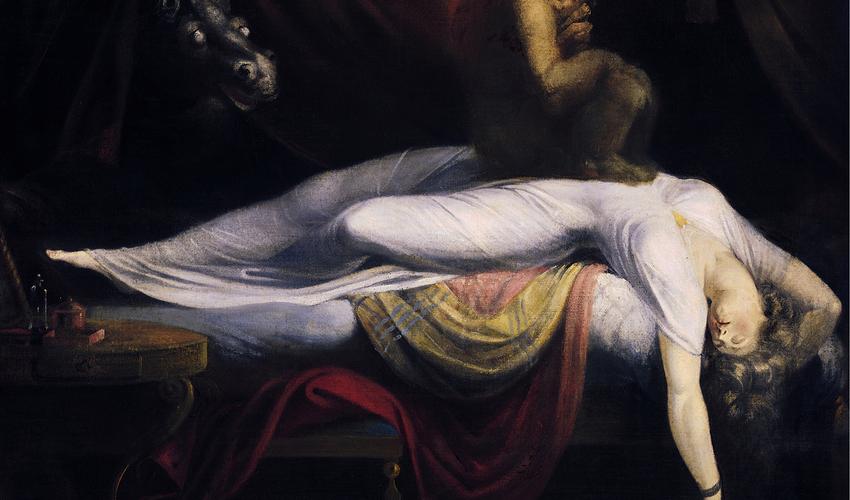I woke up this morning ... and was paralyzed
Imagine you wake up one morning. You find it difficult to breathe. It's like there is something pressing down on your chest. Then you get this strong feeling, that there is someone or something present in your bedroom. You hear a whispering sound.
You want to scream for help and run away, You want to defend yourself, but you can not move. You are completely paralyzed. You can not even get a single word or a sound over your lips.
Sleep paralysis is an extremely frightening experience. It's not uncommon to panic, if this happens to you. I know I would.
The experience happens either when you've just woken up or when you're falling asleep. Usually it 'only' lasts for a few minutes. I trust, that when you're in the situation, it feels like an eternity.
It's not uncommon, to hallucinate in the situation. That's where the strong sense of an intruder comes from. You may also hear sounds like humming, buzzing, hissing or even voices whispering.
You're fully awake and aware, yet you can't move or speak. You feel pretty alone, helpless and to make it worse, you can't even cry for help.
Scary, but no cause for alarm
If you're an otherwise healthy adult, and it's only happened once, there is no reason for alarm. It's a rather common condition. One estimate suggests that up to 40% of the population, will experience it once in their lifetime. About 5% of people have regular episodes. Some studies suggest that females are more likely get it.
Is sleep paralysis demonic?
Historically, there are many references to and stories about the experience. They exist all over the world. It's explained as a jinn, a ghost, a witch, an old hag or a night hag, an incubus or a nightmare giving you troubled sleep.
The word nightmare comes from an old English word: mare. A mare is a mythological creature, which torments others with frightening dreams. The mare is often reported sitting on their victims chest, thus making it harder to breathe. The picture used for this post, is from 1781, showing a (night) mare sitting on a sleeping woman.
Many scientists now believe, that sleep paralysis is behind many stories about alien abduction.
What causes sleep paralysis?
During your ordinary REM sleep, your brain paralyzes your body, so you don't act out your dreams. This is completely normal and expected. In rare occasions, this REM sleep paralysis lingers on for a little while, when you wake up.
The hallucinations mentioned earlier, are dreams from your REM sleep. You're still dreaming, but you're awake. REM sleep has not yet let you go.
Studies found that individuals who experience sleep paralysis, have a more fragmented REM sleep. They are also faster to get to the REM sleep state than normal, which may well be a sign of sleep deprivation. Finally, they tend to have shortened NREM and REM sleep cycles.
If you have these experiences often, you should consult a doctor. Preferably a specialist in sleep and sleep disorders. People who suffer from the sleep disorder narcolepsy may often get these experiences. If they have narcolepsy with cataplexy, they may collapse right in front of you.
That would be the REM sleep paralysis kicking in, when they least expect it - and while they're wide awake.
Lucid dreamers are also familiar with sleep paralysis. Some of them even use it as a method of having a lucid dream.

